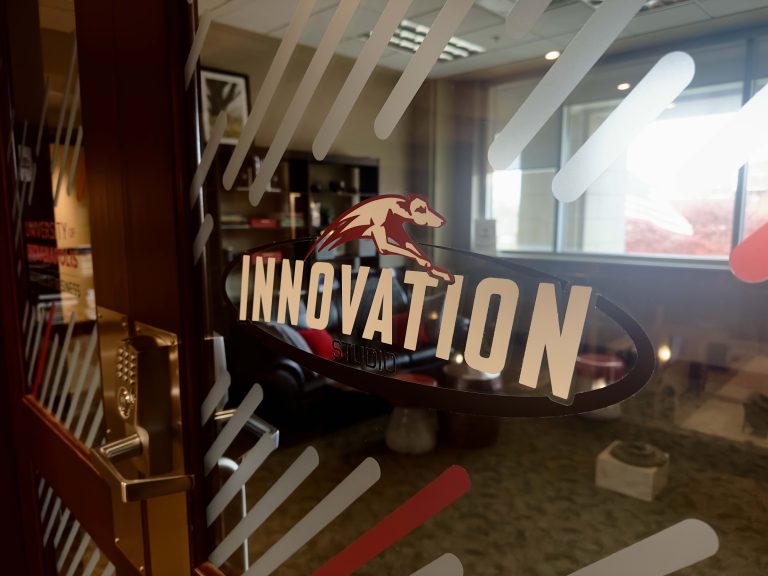April 13 started like any normal day for senior sociology and philosophy major Zak Mitiche. He woke up, went to class, had lunch, and said “hello” to friends. That was until he received an email at 3 p.m. that was so important that University of Indianapolis President Robert Manuel paused his day to meet with him. This was because Mitiche had won a Fulbright Scholarship.
“In a lot of ways, this is validation of the relevance of our programing at the University,” Manuel said, “for somebody to be recognized internationally [who was] competing against the most recognized institutions in the country. And winning shows that not only do we have students of exceptional quality, but we have an experience that forms and educates them in a very unique way.”
A Fulbright Scholarship is a grant that allows students to travel to other countries for individually designed research projects or English Teaching Assistant Programs, according to us.fulbrightonline.org. With his Fulbright, Mitiche will study part of the Arab Spring known as the February 20 Movement. It was a series of protests and demonstrations that took place in Morocco where citizens tried to gain more independence and freedom, according to washingtonpost.com.
“I will be doing oral histories of Moroccan youth. It’s kind of gauged their perceptions on the Moroccan uprisings,” Mitiche said. “Compared to other Arab Springs in the region, the Moroccan uprisings were very calm and relatively successful. So to ask them [Moroccans] why they think that the Moroccan example was relatively successful.”
According to us.fulbrightonline.org, applicants must have a Bachelor’s degree or the equivalent of one, be in good health, submit a medical certificate from a physician, have a proficiency in the language of the host country, and preferably to not have had any previous experience in the country that they are applying to. For Mitiche, the application process was long and difficult.
“Your first task is to come up with a topic and to come up with a subject and to figure out exactly what it is you want to study and where you want to study,” he said.“You have to be strategic about it and think, ‘What country could I apply for and have a good chance of being awarded the grant?’”
The application process for a Fulbright Scholarship opened at the end of March, according to us.fulbright.org, with the completed applications due in October.
The National Screening Committee met from November to December and initial notifications were sent in January with final notifications sent March through May.
“There’s also politics involved with the topic,” Mitiche said,“ The grant is through the United States DOS [Department of State], so that’s the first screening you have to pass though, there. And the second screening is on the Moroccan [country of application] side.”
Mitiche was one of 232 people who applied to work in the Middle Eastern/Northern African region, according to us.fulbrightonline.org, and was one of 54 students accepted. Associate Professor of Sociology Amanda Miller is Mitche’s advisor and said his project is appealing to the Moroccan government.
“We worked very hard to frame it [the project] well, because he’s going to be looking at what went right, as opposed to what goes wrong. And a lot of times in research you study what went wrong, but what goes right can give us just as much, if not better, information,” Miller said. “I suspect that for both Morocco, and lots of other countries throughout the world, that’s going to be useful information.”








